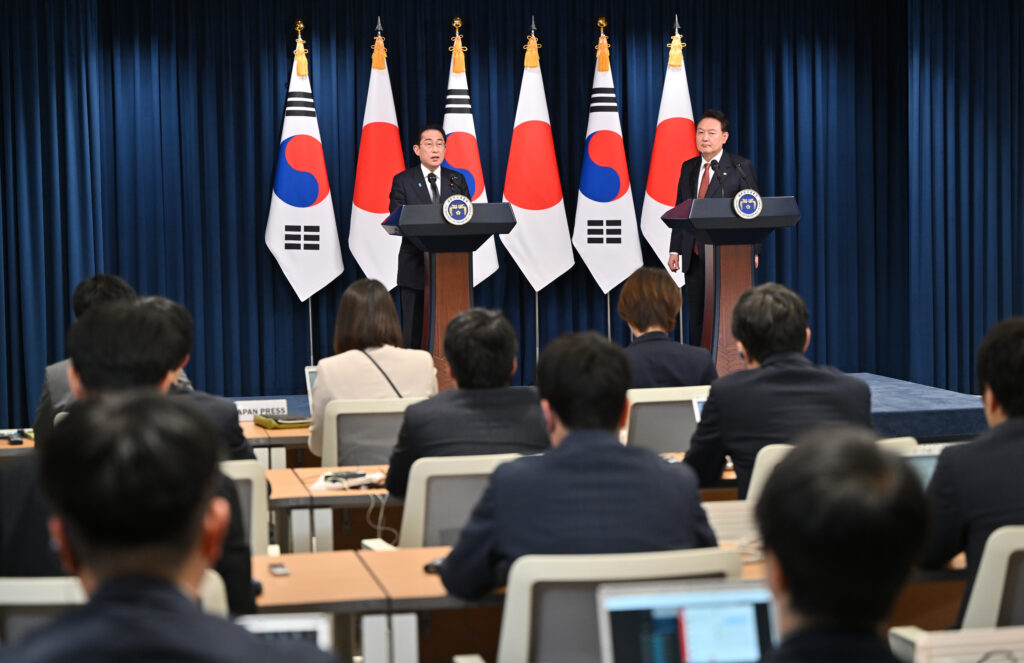
- ARAB NEWS
- 19 Jul 2025

TOKYO: Japanese Prime Minister KISHIDA Fumio visited South Korea from May 7 to 8 in an attempt to effect a rapprochement between the governments of the two countries, but North Korea says the purpose of the meeting was to reinforce a nuclear pact with the United States.
“Japan should ponder what it means to join the United States and South Korea in their joint nuclear cooperation maneuver,” Kim Sul-hwa, a researcher at the Japanese Institute of North Korea’s Ministry of Foreign Affairs, wrote in a piece published by the Korean Central News Agency.
Kim accused the United States of using Japan “as a chess piece” to realize its own ambitions in the Indo-Pacific region.
“We must not forget that the United States, which sacrificed hundreds of thousands of innocent Japanese people for the world’s only barbaric act of using nuclear weapons, regards the Japanese archipelago as nothing more than its own gunpowder depot and logistics base,” Kim stated. “If Japan turns its face away from reality and clings to the establishment of a triangular military cooperation system with the United States, it will destabilize the Northeast Asian region and eventually turn it into a sea of fire.”
Kim said that Japan’s policy of relying on the United States has its own dangers and “it would be a wise course of action to break free from its fate of subservience to the United States and help maintain stable relations with neighboring countries.”
The article suggested that Kishida’s visit to South Korea was aimed at piling more humiliation on the South’s embattled leader, Yoon Suk Yeol, who has proven to be uniquely unpopular just a year into his term as president.
Kim wrote: “The reason why the pro-US, crazy South Korean dictator said, ‘We will not exclude Japan’s participation in the Washington Declaration,’ and that we could cooperate with Japan at any time, is because of the relationship between Japan and South Korea. It represents the ulterior motives of the United States, which seeks to create a ‘Tripartite Extended Deterrence Consultation’ and establish a US-led ‘nuclear military alliance’ system in Northeast Asia.